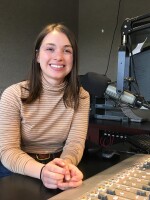The Park City Council received an update Friday at its annual retreat on the progress the City has made towards filling the need for affordable housing in the community.
The creation of affordable and attainable housing became a critical priority for the Park City Council in 2015, and in 2016 the City launched an initiative to create 800 units by 2026. Since then, 39 units have been completed, with 464 in the works and 297 yet to be funded and identified.
Housing Development Manager Jason Glidden brought up the possibility of building outside city limits, asking the council if they wanted staff to assess potential opportunities there.
Councilmember Becca Gerber expressed concerns about adding to the traffic problem by sprawling outside of Park City proper, but Councilmember Steve Joyce argued that, with thousands of units coming online near Jordanelle, Park City’s traffic impact from outside the major corridors would be a drop in the bucket–providing the transit infrastructure is in place. He said building farther out could provide the space needed for the yet-to-be-identified units.
"As long as it’s not very far out, it seems like a lot of opportunity to try to address the 300 that we don’t have an answer for, and it’s hard to imagine anything that’s not going to be exorbitantly expensive to pick up in here, and I think we just want to be careful that anything we would consider out there has to have an excellent transit answer."
Budget Manager Nate Rockwood brought up the possibility of the City creating more units for rent, especially in the Arts and Culture District. He said the funding model would allow more units to be built at the same time, while the current for-sale model only allows units to be built one after the other, because the revenue from the unit sold revolve into the costs for the next unit. One downside to rentals, Rockwood said, is an HOA-type group would be required for maintenance and management of the properties. The council supported the rental model.
Keeping parking and traffic in mind, the council also entertained the idea of banning cars for residents in certain housing projects. Mayor Andy Beerman said cars can provide a logistical barrier to developing housing, and those sorts of restrictions on cars are common.
"Is Council willing to consider building a project where you’re not allowed to have a car and something central enough on the transit system?" Beerman asked. "You go to big cities, and there are a lot of people that live in flats, and they don’t have cars. You go to college, and a lot of campuses don’t allow cars—they’ll give you a park and ride outside of town. We could provide space out of Richardson Flat where people could have cars."
Councilmember Tim Henney predicted that in five years, the City would begin work on a car-less affordable housing project.


